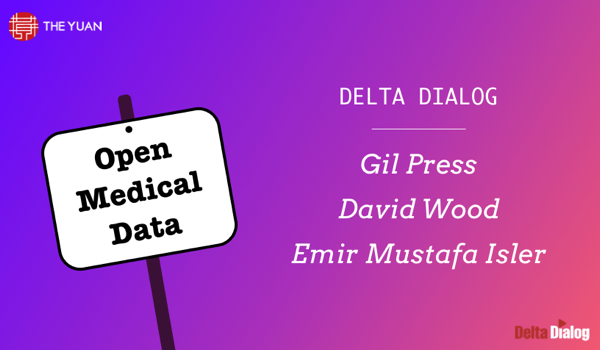
ISTANBUL -
Left behind? Pluses and minuses of US digital health
“There are positive indicators and there are negative indicators,” said artificial intelligence commentator Gil Press when talking about the development of digital health in the United States. Electronic Health Records (EHRs) provide several advantages for the US healthcare system, including improved patient care, increased efficiency, better coordination of care, reduced medical errors, and cost savings. EHRs allow healthcare providers to access patients' medical records easily and securely, enabling them to make accurate diagnoses, create treatment plans, and coordinate care with other providers. EHRs also streamline administrative tasks, reduce medical errors, and lower healthcare costs by improving efficiency and reducing the need for redundant or unnecessary tests and procedures. Overall, EHRs are a crucial tool for improving the quality and efficiency of healthcare delivery in the US.
Press noted a few negative aspects of the development of digital health in the US: “The question is, is this data being shared? It’s not being shared,” he concluded. Two negative aspects of EHR systems are a lack of standardization among different providers, making data sharing and collaboration difficult, and the potential for exacerbating existing healthcare disparities by limiting access to care and digital technologies. These factors might hinder the development of open medical data and more effective healthcare strategies.
According to London Futurist Chair and AI author David Wood, Press “…makes a fascinating comparison with this situation and the creation of the internet.” The lack of standardization in EHR systems can be compared to the early days of the worldwide web when there were many competing standards for protocols, web browsers, and other technologies. Just as the lack of standardization made it difficult for users to navigate the internet and share information, the lack of standardization in EHR systems makes it difficult for healthcare providers to share data and collaborate effectively.
However, the healthcare industry is working towards developing interoperability standards to address this issue. Organizations such as the ONC and HIMSS are spearheading efforts to establish common standards that will enable healthcare providers to share data and collaborate effectively, thus promoting the development of open medical data.
What’s in it for me?/Why should I care?
The development of digital health and open medical data in the US is expected to have several positive impacts on the general public, including more personalized and effective healthcare, increased transparency and access to medical data, and cost savings through more efficient healthcare delivery. However, there are also risks associated with data privacy and security, potential exacerbation of healthcare disparities, and the need for adequate digital literacy and access to technology. The overall impact of these technologies on Americans will depend on how well these risks are addressed and how effectively the benefits are shared across society.
Further Reading:- What is next for digital health?
- NLP breakthroughs may advance healthcare practice
- The Yuan AI 2023: DL to loom large in future AI in healthcare





 466 views
466 views






